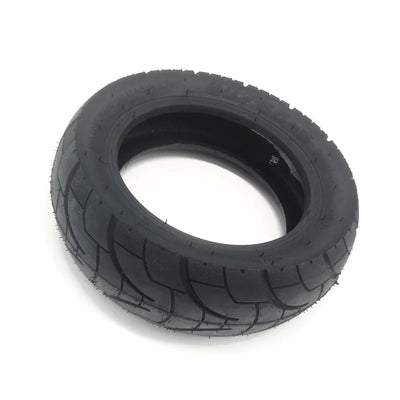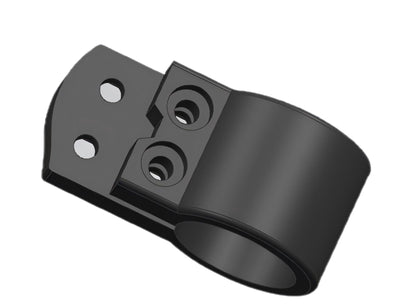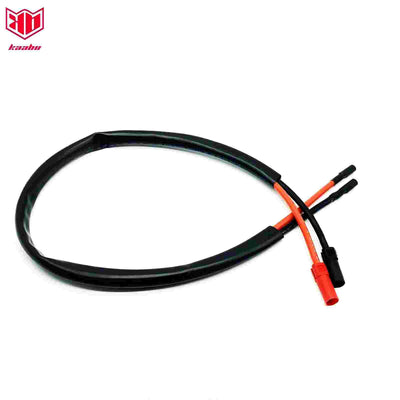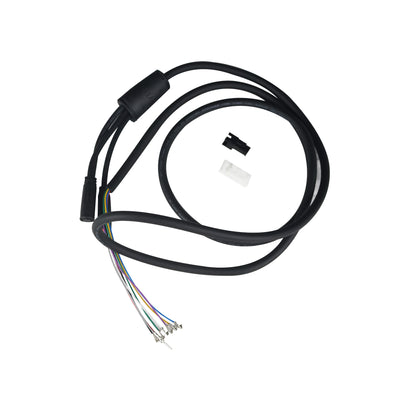Do Electric Scooters Need a License? Discover the Facts
Introduction:
Electric scooters are zipping through cities worldwide, offering a convenient, eco-friendly mode of transport. But a common question looms: Do you need a license to ride an electric scooter? If you're curious about the legalities and want a smooth ride without hassles, this guide is for you. We’ll explore the rules, benefits, and all the nitty-gritty details about electric scooter licenses.
Electric Scooters: A Brief Overview
Electric scooters, or e-scooters, have surged in popularity due to their ease of use, affordability, and environmental benefits. Typically, these scooters run on a rechargeable battery, allowing users to travel short to medium distances efficiently. They’re perfect for urban commuting, reducing the need for traditional cars and thereby cutting down on pollution and traffic congestion.
Why Electric Scooters?
- Eco-Friendly: Electric scooters produce zero emissions, making them a green alternative to cars and motorbikes.
- Cost-Effective: Lower maintenance costs and no need for fuel make them a budget-friendly choice.
- Convenient: Ideal for short commutes, they help bypass traffic and parking issues.
Do You Need a License for an Electric Scooter?
The burning question: Do electric scooters require a license? The answer varies depending on your location. Let’s break down the regulations by regions to give you a clearer picture.
Understanding e-scooter licensing is important, and the same goes for online stores. Many brands work with a Shopify SEO agency to improve visibility and reach the right customers.
United States
In the U.S., regulations differ by state and even by city. However, most states have similar guidelines:
- No License Required: In many states, you don’t need a driver’s license to ride an electric scooter. However, there are age restrictions, typically requiring riders to be at least 16 years old.
- Speed Limitations: Most states limit electric scooters to a top speed of 15-20 mph. Exceeding this speed might classify the scooter as a motor vehicle, which would require a license.
- Helmet Laws: Helmets are often mandatory, especially for riders under 18.
Europe
European countries also have diverse regulations:
- United Kingdom: No license is required to ride an electric scooter on private property. However, for public roads and bike lanes, a provisional driving license is necessary.
- Germany: Riders must have a moped license, and scooters should be insured.
- France: No license is needed, but riders must be at least 12 years old and adhere to speed limits (25 km/h).
Asia
In Asian countries, rules can be stricter:
- China: Most cities require electric scooter registration, and in some cases, a license.
- India: Scooters with a top speed under 25 km/h and power up to 250W don’t need a license. Faster models do require one.
- Japan: Electric scooters are categorized as mopeds and need a standard driver’s license.
Australia
Australia’s rules are state-dependent:
- Queensland and ACT: No license required if the scooter’s speed is capped at 25 km/h.
- New South Wales and Victoria: Stricter regulations; licenses might be required depending on the scooter’s specifications.
Benefits of Riding an Electric Scooter Without a License
Riding an electric scooter without needing a license offers numerous advantages:
- Accessibility: More people can use electric scooters without the barrier of obtaining a license.
- Cost Savings: No license means no fees associated with licensing processes or renewals.
- Convenience: Avoiding the bureaucracy associated with vehicle registration and licensing simplifies ownership.
Safety Measures and Responsibilities
Even if you don’t need a license, safety should always be a priority. Here are some essential safety tips:
- Wear Protective Gear: Always wear a helmet and consider additional protective gear like knee and elbow pads.
- Follow Traffic Rules: Adhere to traffic signals and road signs to ensure your safety and that of others.
- Stay Visible: Use lights and reflective clothing, especially at night.
- Regular Maintenance: Keep your scooter in good working condition to avoid accidents.
The Future of Electric Scooters and Licensing
As electric scooters become more popular, regulations may evolve. Some factors influencing future regulations include:
- Safety Concerns: Increased accidents may lead to stricter regulations, including mandatory licensing.
- Environmental Impact: Growing environmental awareness may push for more lenient rules to promote eco-friendly transport.
- Urban Planning: Cities might design infrastructure to accommodate electric scooters, influencing regulatory changes.
Technological Advancements
Technological improvements in electric scooters could also affect licensing requirements. Features like better speed control, enhanced safety mechanisms, and improved battery life might lead to a reevaluation of current laws.
Electric Scooter Myths Debunked
Let’s bust some common myths about electric scooters:
-
Myth: You always need a driver’s license to ride an electric scooter. Fact: As discussed, many places don’t require a license for electric scooters, especially for lower-speed models.
-
Myth: Electric scooters aren’t safe. Fact: With proper safety measures, electric scooters are as safe as bicycles.
-
Myth: Electric scooters are expensive. Fact: The initial cost might be higher, but they save money in the long run on fuel and maintenance.
Choosing the Right Electric Scooter
When selecting an electric scooter, consider:
- Speed and Range: Ensure the scooter meets your travel needs without exceeding legal speed limits.
- Battery Life: Longer battery life means less frequent charging.
- Build Quality: Look for sturdy materials and reliable brands.
- Safety Features: Prioritize scooters with good braking systems, lights, and reflectors.
Top Electric Scooter Brands
Here are some top brands to consider:
- Xiaomi: Known for their affordable and reliable models.
- Segway: Offers high-quality scooters with advanced features.
- Kaabo: Renowned for powerful scooters ideal for longer commutes.
- Ninebot: Popular for their robust build and excellent battery life.
Electric Scooters and the Environment
Electric scooters are a sustainable choice. Here’s how they contribute to a greener planet:
- Reduced Emissions: They produce zero direct emissions, lowering air pollution.
- Energy Efficiency: Electric scooters use less energy compared to cars and motorbikes.
- Reduced Traffic: By occupying less space and reducing the number of cars, they help ease traffic congestion.
FAQs
1. Do I need a license to ride an electric scooter? No, in many places, you don’t need a license, but it depends on local regulations. Check your local laws for specifics.
2. Are electric scooters safe? Yes, they can be safe if you follow safety guidelines such as wearing a helmet and adhering to traffic rules.
3. How fast can electric scooters go? Most electric scooters have a top speed of 15-25 mph, depending on the model and local regulations.
4. Can I ride an electric scooter on the sidewalk? In many areas, riding on the sidewalk is prohibited. Stick to bike lanes and roads where scooters are allowed.
5. What should I look for in an electric scooter? Consider speed, range, battery life, build quality, and safety features when choosing an electric scooter.
Summary
Electric scooters are transforming urban mobility with their convenience, cost-efficiency, and environmental benefits. While the need for a license varies globally, many places allow you to ride without one, especially for lower-speed models. Always check your local regulations to ensure compliance and prioritize safety to enjoy the full benefits of this modern mode of transport. Whether you're commuting or exploring, electric scooters offer a fantastic way to navigate the world around you.


































